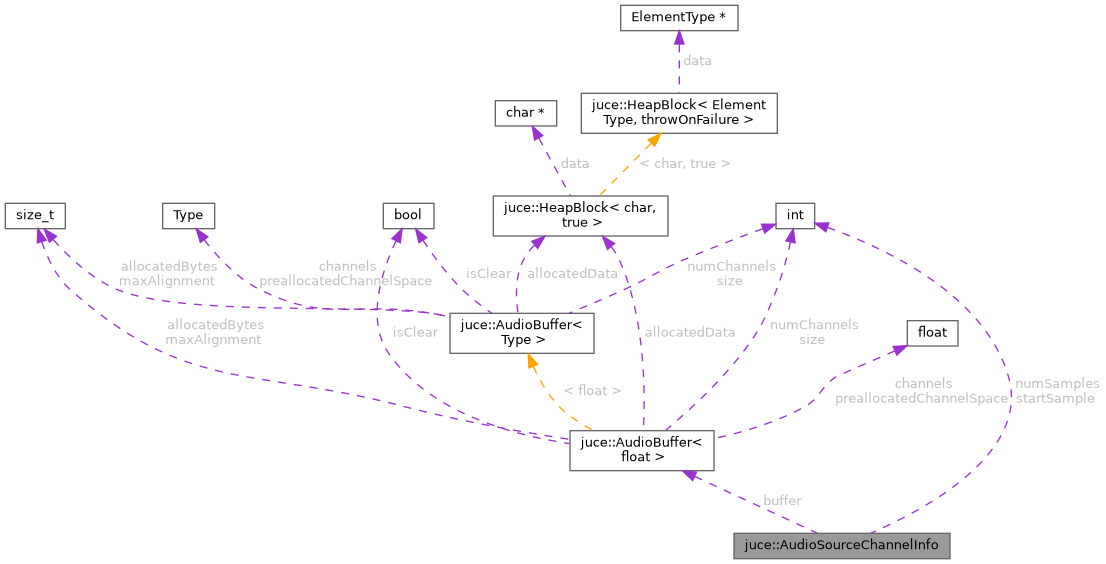Used by AudioSource::getNextAudioBlock(). More...
#include <juce_AudioSource.h>

Public Member Functions | |
| AudioSourceChannelInfo ()=default | |
| Creates an uninitialised AudioSourceChannelInfo. | |
| AudioSourceChannelInfo (AudioBuffer< float > &bufferToUse) noexcept | |
| Creates an AudioSourceChannelInfo that uses the whole of a buffer. | |
| AudioSourceChannelInfo (AudioBuffer< float > *bufferToUse, int startSampleOffset, int numSamplesToUse) noexcept | |
| Creates an AudioSourceChannelInfo. | |
| void | clearActiveBufferRegion () const |
| Convenient method to clear the buffer if the source is not producing any data. | |
Public Attributes | |
| AudioBuffer< float > * | buffer |
| The destination buffer to fill with audio data. | |
| int | numSamples |
| The number of samples in the buffer which the callback is expected to fill with data. | |
| int | startSample |
| The first sample in the buffer from which the callback is expected to write data. | |
Used by AudioSource::getNextAudioBlock().
@tags{Audio}
|
default |
Creates an uninitialised AudioSourceChannelInfo.
|
inlinenoexcept |
Creates an AudioSourceChannelInfo.
|
inlineexplicitnoexcept |
Creates an AudioSourceChannelInfo that uses the whole of a buffer.
Note that the buffer provided must not be deleted while the AudioSourceChannelInfo is still using it.
|
inline |
Convenient method to clear the buffer if the source is not producing any data.
| AudioBuffer<float>* juce::AudioSourceChannelInfo::buffer |
The destination buffer to fill with audio data.
When the AudioSource::getNextAudioBlock() method is called, the active section of this buffer should be filled with whatever output the source produces.
Only the samples specified by the startSample and numSamples members of this structure should be affected by the call.
The contents of the buffer when it is passed to the AudioSource::getNextAudioBlock() method can be treated as the input if the source is performing some kind of filter operation, but should be cleared if this is not the case - the clearActiveBufferRegion() is a handy way of doing this.
The number of channels in the buffer could be anything, so the AudioSource must cope with this in whatever way is appropriate for its function.
| int juce::AudioSourceChannelInfo::numSamples |
The number of samples in the buffer which the callback is expected to fill with data.
| int juce::AudioSourceChannelInfo::startSample |
The first sample in the buffer from which the callback is expected to write data.